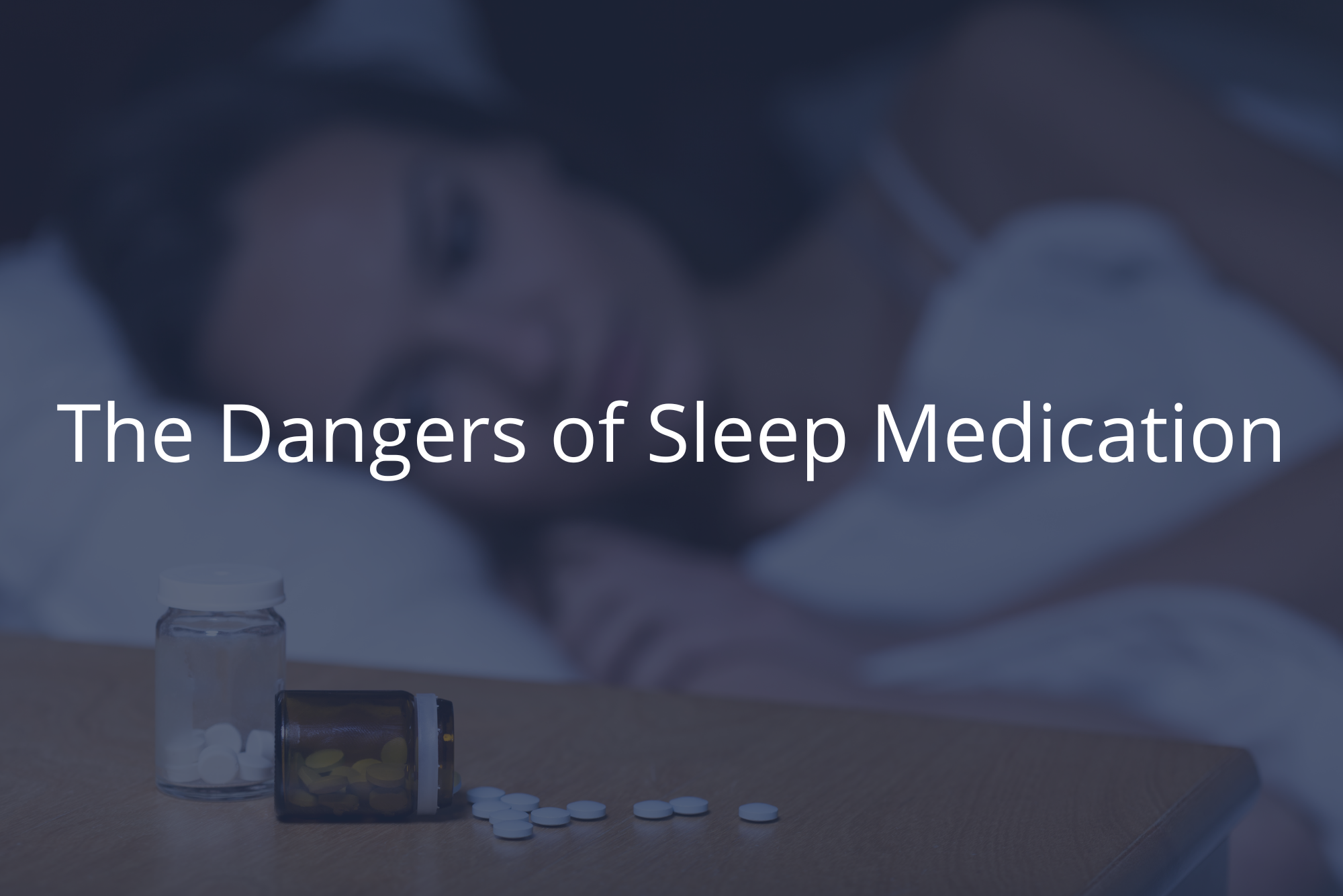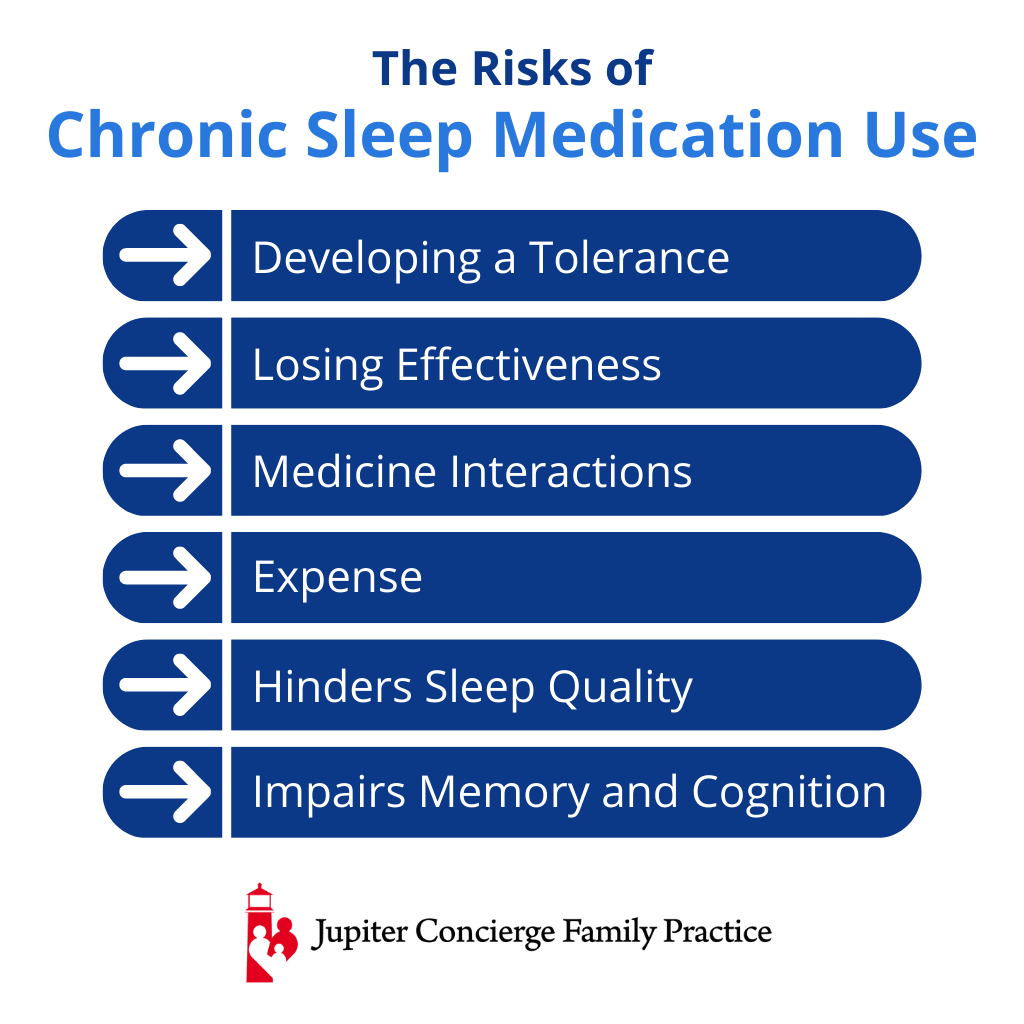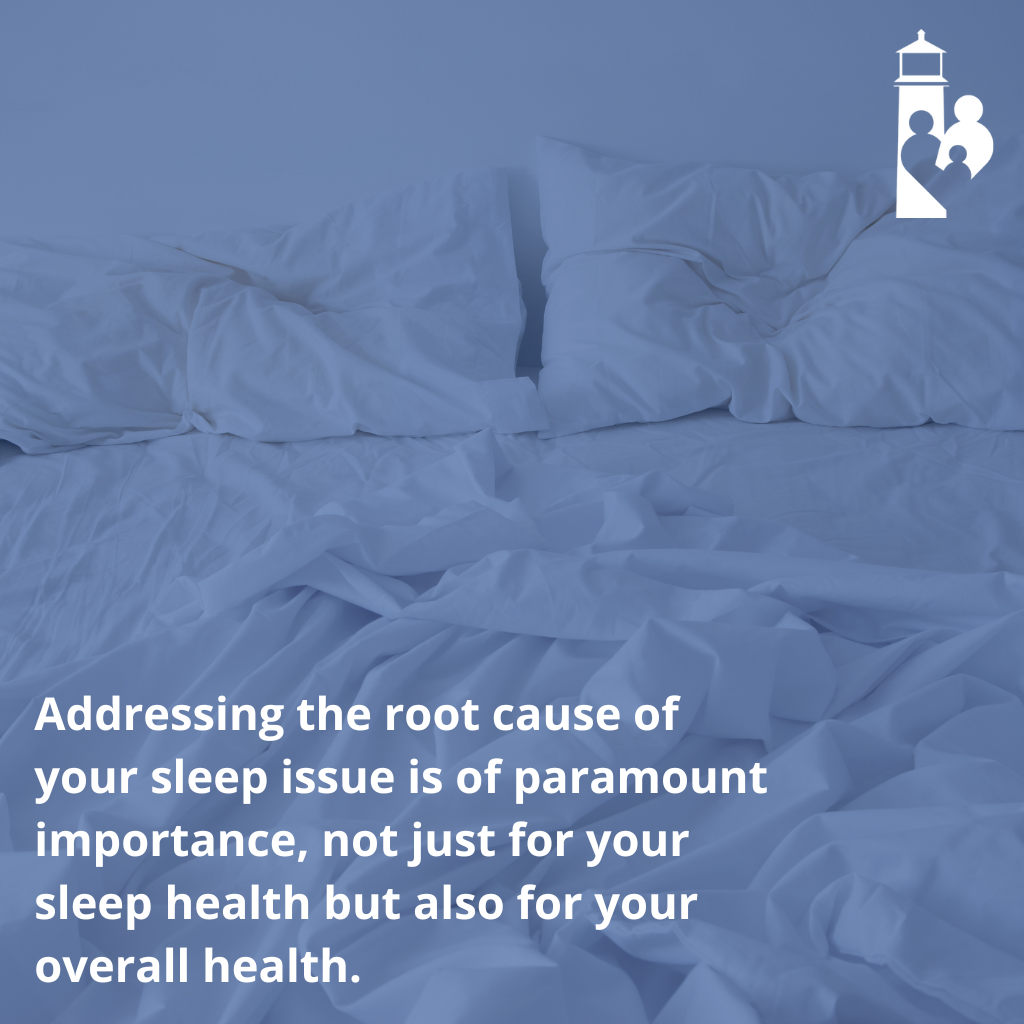
It’s time for one of those real-talk truths that isn’t necessarily popular: There is no pill-based shortcut for healthy sleeping.
There’s no magic bullet — not silver, gold, or any other metal — that leads to good sleep. Good sleep comes from good habits, not good pills.
People who sleep well all have something in common — they all have good sleep hygiene, for which the following factors are instrumental:
- Routine. They get up and go to bed at the same time each day.
- Behavior before bed. No TV or screens.
- Minimal use of stimulants and sedatives. This includes both illegal and legal substances, like coffee, alcohol, and antihistamines (e.g. Tylenol PM). Stimulants, of course, keep you awake. Sedatives, somewhat counterintuitively, disrupt the sleep cycle.
While we may love quick fixes, they rarely work in healthcare. So, is there a good over-the-counter sleep aid you should use? Not really. Sleep medication — especially with chronic use — leads to more problems.
When Sleep Medication Is Helpful and Healthy
Sleep aids have a very limited — albeit helpful — zone of applicability. Sleep medication can be safely used episodically for very specific situations and durations.
For example, flying on a plane to Singapore may be a great time to use an over-the-counter sleep aid. Jet lag and other causes of sleep cycle disruptions can respond well to this kind of targeted use of sleep medication.
That said, sleep aids always come with potential side effects, even when used episodically and appropriately. We’ll get to those risks in a moment.
First, Find the Root Cause
Before you start looking for a good over-the-counter sleep aid, let’s explore the problem with using sleep aids in the first place.
Chronic use of sleep medications, whether over-the-counter (OTC) or prescription, can actually cover up the root cause of a sleep issue. Maybe your sleep is disrupted by environmental or external factors like an uncomfortable bed, a snoring partner, or inadequate pillows. In that case, a permanent fix should be relatively simple — but you won’t discover it if you resort to medication instead.
Or, maybe you have an underlying medical problem that’s upending your sleep. You could have back pain, unmanaged stress, sleep apnea, chest pains, or any other number of serious problems that need serious treatment.
If you simply take a sleep aid to overrule the issue that’s preventing your slumber, that underlying problem remains untreated, potentially worsening over time. Addressing the underlying problem first could catch a serious health matter before it reaches a critical stage, and it could also prevent you from developing a dependency on, and misusing, sleep medication.
 The Risks of Chronic Sleep Medication Use
The Risks of Chronic Sleep Medication Use
Risk #1 — Developing a Tolerance
Even good over-the-counter sleep aids — including natural ones like melatonin — become less effective the more often you use them. This means you have to take more and more to achieve the same result.
Risk #2 — Losing Effectiveness
If you continue taking a sleep aid, your tolerance develops to a point after which the medication no longer works at any dose.
Risk #3 — Medicine Interactions
Psychiatric or pain medications can be dangerous to take with sleep medications. Their interactions can multiply the sedative effects.
Risk #4 — Expense
Spending money on medicine you don’t truly need is one way sleep aids can be expensive, but it’s not the only way. Combine that with needing to increase the quantity due to tolerance or change the type due to loss of effectiveness, and you’ve got an ever-increasing expense.
Risk #5 — Hinders Sleep Quality
Sleep medications interfere with your sleep cycle, creating a stressor that prevents your body from performing essential functions in sleep, like repairing your immune system. When it comes to sleep, quality matters just as much as quantity.
Risk #6 — Impairs Memory and Cognition
As you age, you metabolize sleep medication differently than before. This can cause problems with thought processes associated with memory loss.
What Is a Good Over-the-Counter Sleep Aid: Final Thoughts
It’s not easy to struggle with sleep. Even the fear of not being able to sleep can perpetuate itself, becoming part of the problem. When this is the case, psychological techniques, whether it’s using the Calm app, getting help from a psychotherapist, or practicing self-hypnosis, can help you conquer the fear of your bed.
However, one of the hardest things for people to accept in health is that, while it’s easy to “just take a pill,” taking a pill isn’t the best thing for you.
Addressing the root cause of your sleep issue is of paramount importance, not only for your sleep health but also for your overall health. So, while over-the-counter sleep aids may work adequately in limited, one-off situations, no sleep aid is a good idea for the long term.

